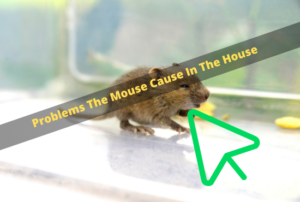ATAP Pest Control is one of the best mouse exterminators in Chicago companies that get rid of mice from your house. Call ATAP Pest Control to grab authentic services at (708) 980-0092.

Mice may appear to be adorable creatures, but they may carry disease, cause damage to your home, and generally do not make acceptable roommates. Here’s all you need to know about the mouse. So you’ll quickly understand how to get rid of it if you find a mouse in your house.
The mouse has the potential to make you quite sick if staying in the house
However, house mice may not pose the same health dangers as deer mice. Mouse urine, droppings, saliva, and nesting materials can spread infections like hantavirus and salmonella. An infestation can be lethal.
They multiply quickly
Don’t be tricked into thinking that your house contains only one mouse. Mice may reproduce all year, with a single female producing five to ten litters per year. A family of six mice can increase to 60 over three months, with an average of six to eight babies every waste.
They have the capability of destroying your home.
It may sound unduly dramatic to imply that a mouse can burn down your house. But the truth is that they can. Mice enjoy gnawing on wires, and when they’re in your walls and attic, with complete access to your home’s electrical wiring, you can bet they’re nibbling away. They do this to maintain their teeth short and gain access to areas where the wires may be obstructing (such as the hole a wire runs through). When a wire becomes bare, the possibility of it starting a fire increases. Rodents are responsible for 25% of all fires in the United States attributed to “unknown causes.”
Mice can eat their way through soft concrete, wood (structure and furniture), drywall, rubber, plastic pipes, insulation, aluminum, and even gas lines.
The mouse always finds a way to enter the house
Mice may fit through considerably smaller gaps than they look (think the size of a dime). Holes and cracks in your foundation and outer walls. As well as doorways and areas surrounding windows, chimneys, roof vents, and wherever pipes and wires enter your property are all ideal access points. They can also jump, climb, and swim, making it nearly hard to keep them out.
They will consume anything
Mice, as previously said, will gnaw and eat through everything. They are particularly fond of grains and can easily consume a box of cereal or crackers. They also eat 15 to 20 times per day and build their nest near a food supply (think your kitchen or pantry). Eating food contaminated by mice is a definite method to catch an illness from them.
Signs that you have a mouse in a house
You most likely have mice in your home if you have seen mouse droppings or nesting material, heard noises in your walls or attic (especially at night), or seen traces of food packaging being chewed.
Removing mouse droppings
Because of the risk of disease linked with mice, cleaning up their nesting or defecation and urination places is a task you should never ignore.
Vacuuming and sweeping mouse droppings is a no-no since it releases other bacteria into the air, and the dust might make you sick. When cleaning up mouse-infested areas, always wear a mask and latex or vinyl gloves. When you’re finished, toss the dirty paper towels in a plastic bag and dispose of them outside. The entire space should then be cleaned and disinfected.
You should discard the food that you have eaten or left.
What is the best way to get rid of mice?
When you discover mice, it is preferable to deal with them as soon as possible to reduce the risk of damage and disease spread. Also, find rodent removal near me to get rid of mice in the house.
Snap traps and poison pellets or bait stations are the most frequent DIY ways for getting rid of mice in your home. It would be best to place traps and set them in your home, where you identify the mice. For the most significant results, skip the cheese and fill the trap with a piece of cracker dipped in peanut butter. Check the traps daily and use a pair of vinyl or latex gloves to liberate any trapped dead mice. You should place the dead mouse in a plastic bag and discard it outside as soon as possible.
Place poison pellets and baits stations in kitchen and bathroom cupboards, attics, basements, and other areas identified mice. Most mouse poison pellets and bait stations are safe for pets and children, but exercise caution and follow the instructions on the packaging.
Ultrasonic sound systems, such as the Pest Chaser line, use an electronic tone to produce “very stressful conditions for rats,” causing them to flee your house. These are available in various sizes, depending on whether you want to cover a single room or an entire floor of a home or apartment. The sound emitted is only audible to rodents and will not irritate you or your pets.
Contact a pest control professional if you have a significant infestation or discover that traps and poison aren’t working quickly enough.
Prevention
The key to preventing mice from entering your home is prevention and preventing yourself from the mouse in the house.
Checking the perimeter of your home for holes or cracks, as well as clearing away any piles of wood, leaves, or other debris near your foundation walls will make it more difficult for them to gain entry. Caulk around doors, windows, and any openings for wiring and pipes. Examine your roof and roof vents for damage or holes, and repair as necessary. It’s also a good idea to keep your gutters clean.
Store dry items (including cat and dog food) in properly sealed hard plastic or glass containers inside your home.
It will keep your food from becoming contaminated and will reduce your chances of catching an illness. Take out the rubbish regularly, and don’t leave open food on your counters, as this can attract mice.
